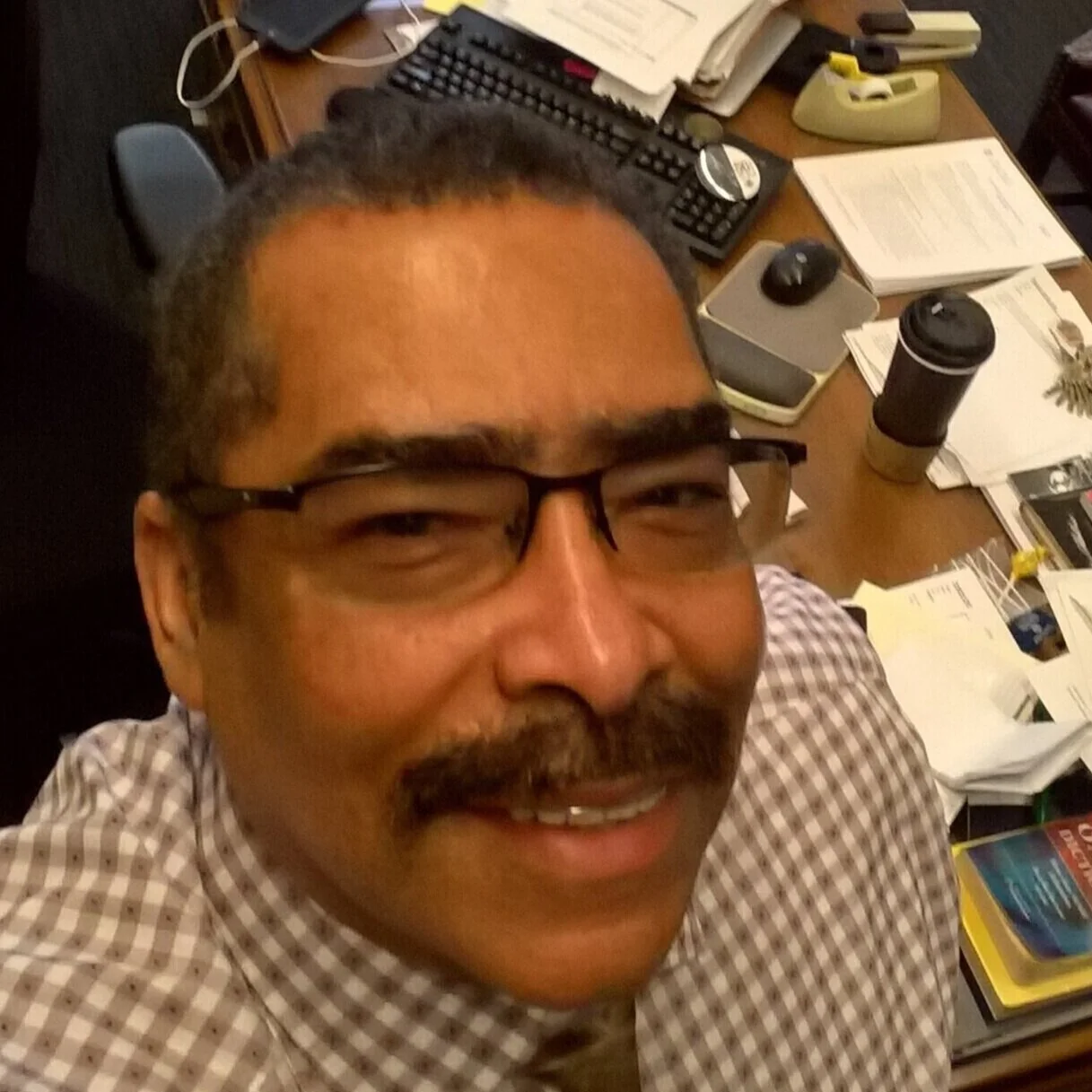Remembering the Reasons for Reparations
08-01-2021
Many think money when they hear the word, reparations. Kenith Bergeron, a Masters of Theological Studies student, says it’s so much more than that. Check out his reflection after taking this summer’s intensive course, Redemption’s Call: Race, Reparations, and the Church. It was taught by Rev. Dr. Iva Carruthers, the founding director of the Center for Reparative Justice, Transformation, and Remediation on McCormick’s campus, and the general secretary of the Samuel DeWitt Proctor Conference. Bergeron shared thoughts with Leading Change on this centuries-long debate and the church’s role in setting right a long-standing injustice.
“Remember. Repair. Restore. Rejoin. Replenish. Set Right. Reconcile. That’s the road to reparations and healing. That’s what stood out for me. But let me just focus on remembering.
I came to the course with a good knowledge about how Africans were brought to America, the Transatlantic Slave Trade System, the Civil War, Reconstruction, Jim Crow, the 1920 Riots, lynching during the 1900s, the Civil Rights movements of the 1960s through today’s BLM movement, use of excessive force by law enforcement and mass incarceration. What this course brought was an engagement with national and international scholars that tied the past to what we’re experiencing in the present and how to create a more equitable future.
First, kudos to Dr. Carruthers for her own work on reparations and then bringing leaders who have also been on the frontlines into our online classroom. Rev. Dr. Allan Boesak gave the perspective from South Africa. Reparations isn’t just an American issue. People across the world have suffered from the millions of people who were taken from the African continent and placed in the Caribbean, South America and here.
Rev. Robert Turner, the current pastor of the Vernon Chapel A.M.E. Church, gave us the history of the 1921 racial massacre in Tulsa’s Greenwood community. Vernon Chapel is the only edifice that survived that violent onslaught. He’s working on reparations for the descendants of a community that was nearly burned to the ground.
We heard from Robin Rue Simmons, an Evanston, Ill. city council member, who told us about the road that city had to travel to provide reparations to Black citizens who were refused the right to purchase homes in certain sections of the Chicago suburb. The other speakers were powerful as well, helping us remember the reasons behind reparations. You had to have been there!
History matters
Reparations starts by remembering history. Without the historical context, you won’t understand why repairing and restoring and everything else is necessary. Without the remembering, there can be this sense that Black people caused this situation…that we don’t have jobs because we don’t want to work, that we didn’t want to go to college when we weren’t allowed to, or we don’t want to live in nice neighborhoods, when ours were burned to the ground. You have to remember so that you see the big picture and how every facet of life – job opportunities, criminal justice, education, healthcare, housing, etcetera – was structural racism enacted against Black Americans.
Something else we need to remember is that the call for reparations is not a new idea. Callie House, Audrey Eloise Moore, and Marcus Garvey fought for reparations after 1865. Many Japanese American citizens received reparations because they were placed in concentration camps during World War II. Native Americans received reparations in the form of land, sovereignty, funding, and truth-telling about their history and the dignity of their cultures.
The U.S. House and Senate, and a president have apologized to African American people for the country’s 200 years of slavery and the racial segregation that followed. Yet, next steps to right wrongs have often stalled. Right now, there’s a bill, HB 40, in the U.S. House of Representatives to form a commission to study reparations for Black Americans. It just cleared a House committee and is set to go forward for a full House vote – three decades after it was first introduced. Remembering and dealing with history can be long, hard, and painful work.
A place for the church
But the church – not just the African American church – can use its ecumenical power to inform congregations of the moral necessity to right the harm that chattel slavery impacted on African Americans who were enslaved as well as their descendants. The end goal of reparations is not merely monetary payment for unpaid labor, horrific abuse, and generational trauma. It’s also transforming the minds and hearts of our nation from racist ideologies and systemic racism.
When reparations is seen as restorative justice as spoken in Leviticus 6:1-7 and Ezra 6:6-10, we teach each other how to treat each other…we find ways to engage people equitably and serve our communities.
We liberate people from lies and the half-truths of history so that countries that were raided of their people and natural resources aren’t in debt to the very countries that did the raiding. We can start conversations about race, voter suppression and racial equity with our congregations even when educational institutions and elected officials are reluctant to do so. We can provide the context…the remembering…so we can move to the next rungs of experiencing reparations.”
Kenith Bergeron is in his third year of study for a master’s degree in Theological Studies.
“Acts of reparatory justice and reparations represent a process of healing and justice from the prior acts of systemic oppression, dehumanization and trauma suffered by a group of people at the hands and institutions of other people. Most effectively, the process is never just about money but includes the requisite steps of atonement, reckoning and transformation which affirms the untold histories, mutual healing and humanity for all people involved.”
Dr. Iva Carruthers, founding director of the Center for Reparative Justice, Transformation, and Remediation on McCormick’s campus, and the general secretary of the Samuel DeWitt Proctor Conference.


